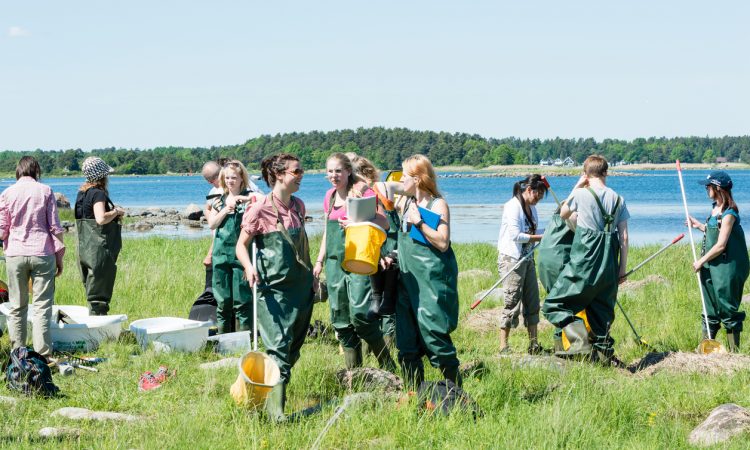Practical learning opportunities for students, under the broad banner of experiential learning (EL), come in many flavours. This may include formalized work-integrated learning (WIL) through co-op and internships, or other EL opportunities such as travel, field work, lab exercises, volunteering and much more. In the spirit of CEWIL Canada’s National Co-op and WIL Month, taking place in March, this article shares associations, initiatives, guides, reports and more related to EL and WIL in Canada. While many of these resources are geared toward post-secondary, they may also be relevant to experiential learning taking place in K-12 or other settings.
Associations/Organizations/Initiatives
Association for Co-operative Education and Work-Integrated Learning BC/Yukon (ACE-WIL)
ACE-WIL BC/Yukon is committed to leading excellence in post-secondary experiential learning through co-operative education and work-integrated learning experiences. It offers information about hiring students for employers, offers general information for students and also has a Student of the Year Award.
Association for Experiential Education
This US-based association that strives to elevate and expand the global capacity of experiential education has members from 35 countries. It hosts an annual conference, produces the Journal of Experiential Education and shares information about accreditation, among other initiatives.
CEWIL Canada
Co-operative Education and Work-Integrated Learning Canada (CEWIL Canada) partners with post-secondary institutions, community members, employers, government and students to champion work-integrated learning. It maintains a national database on WIL, and shares best practices and a manual for co-operative education. It also has a page of WIL definitions and, in partnership with the University of Waterloo and RBC Future Launch, has recently launched a Resource Hub for WIL.
Council for Experiential Learning (CEL)
CEL is an Ontario-based volunteer body with members from the private, public and voluntary sectors that was created to foster experiential learning connections, recognize businesses with the Experiential Learning Employer Excellence and Experiential Learning Employer Champion awards, and advise government.
Education at Work Ontario (EWO)
EWO strives to promote and foster co-operative education of the highest quality, while ensuring an integral partnership between students, employers and post-secondary educational institutions. It presents annual Co-op Student and WIL Student Awards.
Information Technology Association of Canada (ITAC) Talent – Career Ready Program
ITAC’s wage-subsidy program supports businesses by financing their decision to hire a student for a work-term placement. Employers must provide a meaningful work opportunity, where the student will be immersed in technology in a manner that is relevant to their field of study.
Mitacs
Mitacs powers research and development by connecting industry with post-secondary institutions to solve business challenges – in Canada and internationally. For 20 years, Mitacs has funded cutting-edge research, created job opportunities for graduate students and helped companies reach their business goals.
Ontario Cooperative Education Association (OCEA)
The Ontario Cooperative Education Association (OCEA) is a not-for-profit professional organization founded to promote the development of co-operative education, work experience, school-work transition and apprenticeship programs. The Association also develops and facilitates access to information, resources and other supports relevant to OCEA members and other EL professionals in the province of Ontario.
Orbis Communications Inc.
Orbis is an experiential learning solution provider for post-secondary institutions in Canada. Its data-driven technologies and tailored strategies promote student success by supporting universities, colleges and employers on their quest to meet students with relevant experiential learning and meaningful career opportunities.
Riipen
Riipen connects students with companies to work on real projects, for course credit. Project-based experiential learning offers students the opportunity to work on projects from industry, embedded into their curriculum and facilitated by an instructor. Riipen has partnered with RBC Future Launch to make its platform available at 13 post-secondary institutions in Canada.
Student Work Placement Program (Employment and Social Development Canada)
ESDC works with businesses and post-secondary education institutions to provide wage subsidies to employers that offer quality student work placements and create partnerships with colleges, universities, polytechnics and CEGEPs to recruit students for these placements.
Guides/Tools
Accessibility resources for co-operative education programs (University of Waterloo)
This toolkit includes a Co-operative Education Self-study Guide, self-assessment tool for students and accessibility resources for employers. These resources aim to build student capacity and readiness to enter a co-op experience and support institutions and co-op employers in strengthening an inclusive co-op experience.
A Practical Guide for Work-integrated Learning (HEQCO)
This guide from the Higher Education Quality Council of Ontario offers practices to enhance the educational quality of structured work experiences offered through colleges and universities.
Best Practices in Experiential Learning (Ryerson University)
This document defines EL, shares who benefits from it, provides examples of EL and offers a guide to designing EL activities.
Designing Reflection: Six Guidelines for Success (Queen’s University)
A list of elements to consider when designing reflection activities linked to experiential learning to encourage critical thinking and support learning objectives.
Eight Principles of Good Practice for All Experiential Learning Activities (National Society for Experiential Education)
Best practices for EL, including information related to intention, authenticity, reflection, training and assessment.
ExL Reflection Workbook (McGill)
The ExL Reflection Workbook is a hands-on workbook that students can use throughout their experiential learning activity. Included are daily reflection questions, self-assessment exercises, a mid-way check in, and final reflection questions to help unpack and evaluate the experience.
Experiential Learning Examples (Council of Atlantic Ministers of Education and Training)
A series of exercises for K-12 experiential education. Each exercise includes a description of the activity, results and student reflection. Contact information for teachers who have conducted the activity is also available.
Reports
Accessibility and Universal Design in Career Transitions Programming and Services (National Educational Association of Disabled Students)
This CERIC-funded research by NEADS aims to help increase understanding of existing gaps and guide best practice models for accommodations and universal design in career education for students with disabilities. Among the findings: students with disabilities are often lacking in non-academic experiences that can lead to employment including summer employment, part-time work during the school year, co-op placements and internships.
Taking the Pulse of Work-integrated Learning in Canada (Business/Higher Education Roundtable)
This report presents research findings related to three project objectives:
- Identify the breadth of current WIL experiences available at post-secondary institutions in Canada.
- Identify best practices in the design, implementation and delivery of WIL.
- Assess what percentage of Canadian post-secondary students currently participate in WIL prior to graduation.
The Business Case for Work-Integrated Learning in Mining (Social Research and Demonstration Corporation)
This report – based on interviews with industry partners, PSE staff and students – explores the value and benefits of successful WIL initiatives for the Canadian mining sector.
The Global Co-operative & Work-integrated Education Charter (WACE)
This Charter is an outcome of a global consultation regarding co-operative education and work-integrated education led by the World Association for Cooperative and Work Integrated Education (WACE) and launched in August 2019. CEWIL Canada is a signatory to the Charter.
Additional reading/viewing
- Canada’s global leadership in co-op and work-integrated learning (CareerWise)
- Experiential Learning: How We All Learn Naturally (Sprouts) [YouTube video]
- How a work-integrated learning program can help find your career path, from a student who knows (Financial Post)
- How experiential learning helped set me apart from my fellow graduates (CareerWise)
- Positioning Canada as a World Leader in Work Integrated Learning (BTM Forum) [Video]
- The downsides of post-secondary co-op work placements (The Globe and Mail)
- The fourth dimension: 5 tips for building a foundation for experiential learning (CareerWise)
- The Laurier Experience Record: Linking experiential learning to career development (CareerWise)
- The push to bridge the school-work gap (University Affairs)
Want to learn about more resources that can support your work in career development? Subscribe to our popular CareerWise Weekly newsletter to receive the best of CareerWise to your inbox each week, and stay informed about the latest tips and tools in the field.








